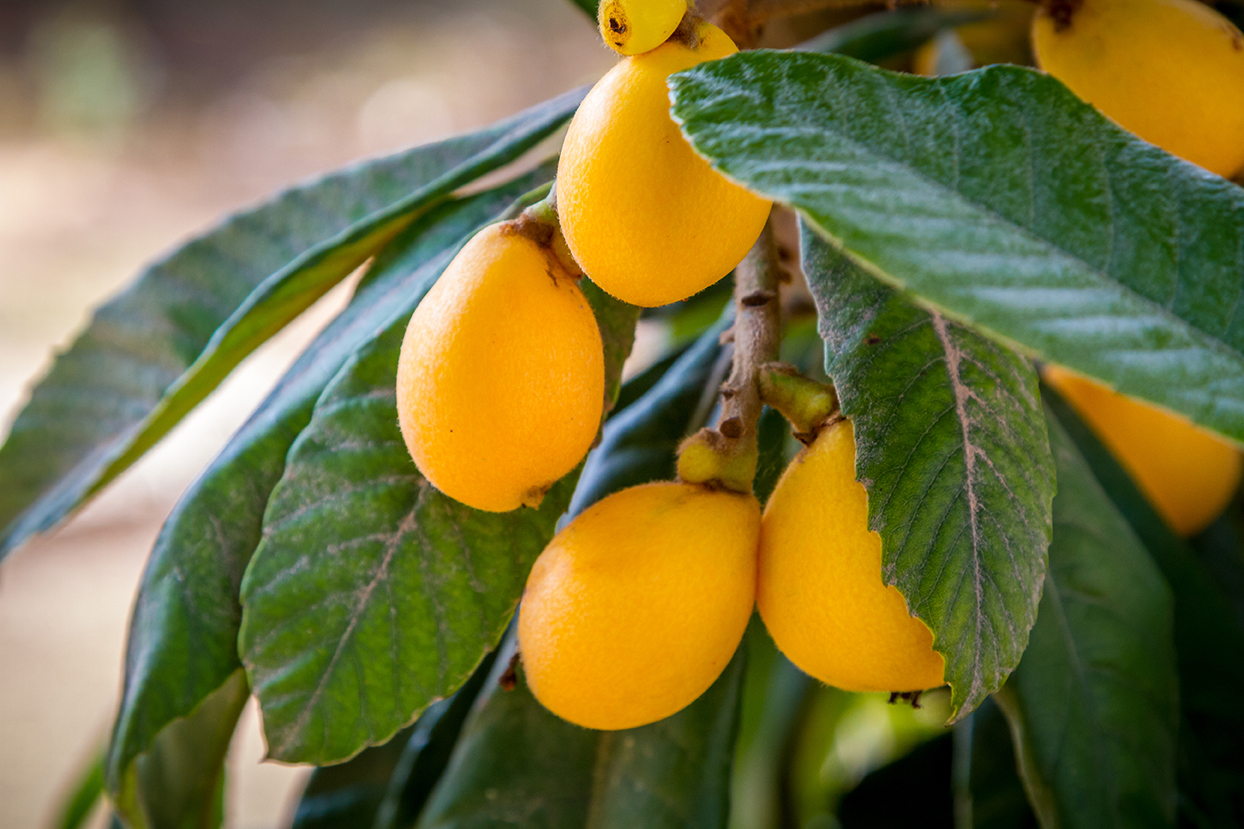Loquat leaf (Eriobotrya japonica et spp.), is named pi pa ye in the traditional Chinese materia medica. The name of the loquat fruit, pi pa, references its resemblance to a miniature Chinese lute by the same name. The Latin Eriobotrya is less poetic and means “bunches” referring to the fruits growing in clusters. Even less poetic but more to the point, I call it “cough killer,” in honor of its most outstanding healing property.
The subtropical evergreen fruit tree is native to China, where it has been cultivated for 200 years or more. It now grows in more than 30 countries worldwide, including in my own garden. The fruit is both nutritious and delicious and is a significant niche cash crop.
Both loquat fruit and leaf are used for treatment of coughs, chronic bronchitis, inflammation, diabetes and cancer in Chinese folk medicine. The fruit contains phenolic compounds, triterpenes, organic acids, starch tannins, and minerals. The anti-inflammatory properties are found in the leaf, fruit and seeds.
In Japan, the red-tinged loquat leaf tea, called biwa, is considered a health beverage and has a pleasant, mild and earthy sweet flavor. The young leaves and seeds or pips are slightly poisonous, and like most common fruit trees contain small amounts of amygdalin, a cyanogenic glycoside which when chewed or otherwise processed, converts to cyanide, a deadly poison. Some believe that the cyanogenic glycosides found in peach, apricot, cassava fruit, sorghum, flax, lima beans, spinach, passion fruit, and loquat are good for slowing the advance of cancer.
In general, avoid eating the seeds but keep in mind they are only poisonous when taken in high quantities. The plant parts mentioned can be dry roasted in the oven or pan for 20 minutes to deactivate the enzymes that convert amygdalin to poisonous cyanide.
In Traditional Chinese medicine, loquat leaves are classified as bitter, sweet and cool. They especially affect the Lung and Stomach.
They are useful for cough caused by Wind-Heat, (inflammatory) acute and chronic bronchitis, gastritis, thirst, vomiting and acid stomach (Stomach Heat). Some say the little hairs on the fresh leaf should be removed before making a tea as they may irritate the throat and increase cough, but I have not found that to be the case. This is even less of a concern with the dried leaves.
Ayurvedic medicine attributes many more uses to loquat leaf and fruit, including sedative properties, and to help regulate high blood pressure.

